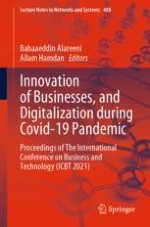2023 | OriginalPaper | Chapter
A Conceptual Model for Implementing Gamification in Education and Its Impact on Academic Performance
Authors : Omar Hasan Salah, Qadri Kamal Alzaghal
Published in: Innovation of Businesses, and Digitalization during Covid-19 Pandemic
Publisher: Springer International Publishing
Activate our intelligent search to find suitable subject content or patents.
Select sections of text to find matching patents with Artificial Intelligence. powered by
Select sections of text to find additional relevant content using AI-assisted search. powered by
